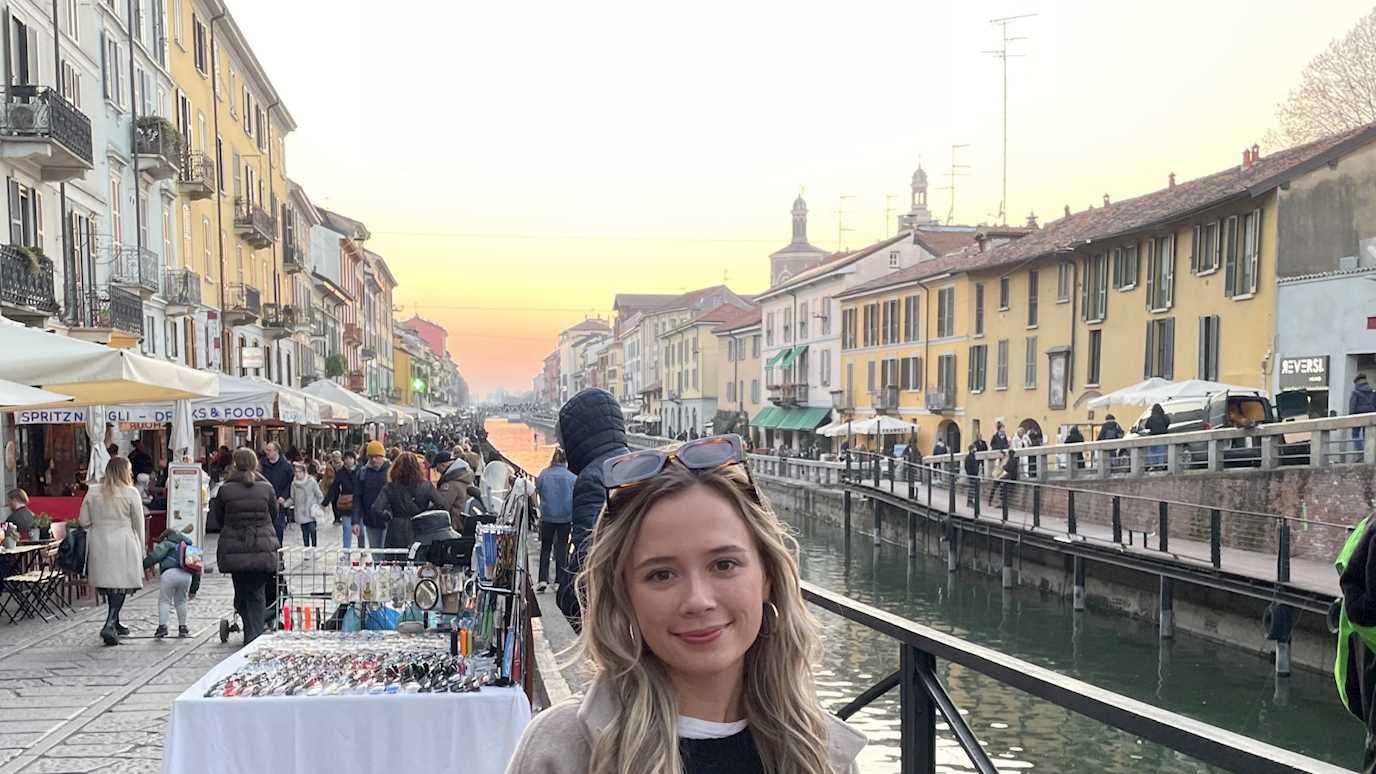Testimonials
See more about our Alumni!
Charlotte de Remeidos
My name is Charlotte, and I studied Holocaust Studies MA at Royal Holloway from 2021-2022. Before this, I studied a History BA at the University of Warwick.
What I enjoyed most about the course was the diversity of modules. For example, there were opportunities to learn about the Holocaust and literature, or film, or topics such as refugee movements and comparative approaches to Genocide. I also relished the opportunity to study in central London, with nearby sites such as the Wiener Holocaust Library and the Imperial War Museum.
Since completing the MA, I have had two jobs. My first was at a small consultancy firm, where I was for a year. I later learned that my CV had really stood out to them. They had inferred that having specialised in such a complex single period of history, my research and analysis skills would be up to the standard that the job required.
I am now currently working at the Holocaust Memorial Day Trust, as an Outreach Officer for museums, prisons and workplaces. Naturally, this job requires a higher level of understanding of the history and importance of the Holocaust, which I gained through the Masters program. However, during my Masters I also developed in confidence, which is incredibly important within any role. This was due to the smaller class sizes in comparison to my Undergraduate degree, as well as the importance of group discussion, and the supportive nature of the tutors throughout the course.

Dr Andy Pearce
I am an Associate Professor in Holocaust & History Education at UCL, where I am also currently the Programme Director of the award-winning UCL Centre for Holocaust Education. I lead a team who deliver a research-informed national programme of Continuing Professional Development (CPD) for teachers in service and in training. At the same time I am involved in educational research, and I'm a historian of Britain and the Holocaust. I write on issues related to teaching, learning and remembering the Holocaust.
I graduated from RHUL with a BA in History in 2002, an MA in Holocaust Studies in 2003 and a PhD in 2010. Following my doctorate I worked at the Holocaust Education Trust, before joining UCL in 2012. I would not have had the career that I have were it not for the education I received at Royal Holloway, and my career would not have taken the direction it has if I had not had the privilege of studying under the staff at the Holocaust Research Institute. I am immensely proud to be an alumnus of the HRI: it truly is a world leader in the field, and the foundations it gives you - academically, professionally and personally - are second to none.
Dr Emily Smith
I was born and bred in the Rhondda Valleys, South Wales and have just recently moved to Cardiff after ten years living in both Egham (near campus) and South London. I am currently an Education Officer at the Holocaust Educational Trust, and I’m also on part-time secondment as an Activity Planning Support Officer for the Welsh Jewish Heritage Centre project based at the Merthyr Tydfil Synagogue in South Wales. I specialise in Jewish migration history within the UK, with a particular focus on microhistories of the Holocaust, including Jewish refugees who settled in South Wales during the Second World War.
Since completing my MA in Holocaust Studies in 2017, I went on to do a PhD at the Holocaust Research Institute under the supervision of Professor Dan Stone, which I completed in 2023. During my PhD, I worked with World Jewish Relief, exploring the history of their origins as the Central British Fund, who were created to support Jewish refugees arriving in Great Britain to escape Nazi persecution in central Europe. Using their extensive refugee case file archive, I explored the organisation’s role in supporting Jewish refugees in Britain during the 1930s and 40s and specifically their relationship with unaccompanied adolescents displaced on the cusp of their adulthood. My thesis was titled “Refugees on Record: Navigating the archives of the Central British Fund; Exploring the relationship between gender, humanitarianism and Jewish-Zionist identity in the experiences of adolescent refugees who came to Britain during the Holocaust”.




















